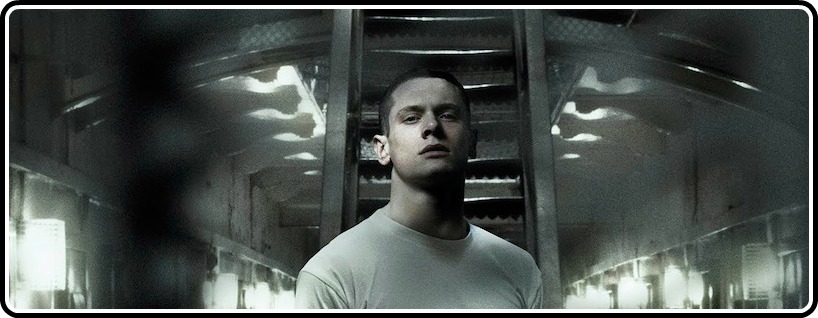
In the storied cinematic history of dreary British prison dramas, David Mackenzie’s new film Starred Up may be the best to come along in some time. Meticulously chronicling the transfer of a young convict named Eric (played with a brilliantly unstable ferocity by relative newcomer Jack O’Connell) to an adult prison facility, the film’s brutal look at how the self-destructive 19-year-old must learn to navigate the unpredictable and harsh realities behind bars is a sobering and stirring portrait of men being pushed past the breaking point. The anti-authoritarian’s troubles are equally compounded by the emergence of his estranged father (Ben Mendelsohn), himself a convict at the new prison, and Eric’s inclusion in an inmate anger management group led by a volunteer psychotherapist (Rupert Friend) with his own demons simmering below the surface. It is a bleak look at the small ways in which prisoners seek to both literally and mentally transcend their own suffocating incarceration.
Mackenzie’s approach to the material is a no-frills policy, many times letting the camera simply follow inmates around cell blocks in level steadi-cam movements or delicately framed static shots that stress the claustrophobic nature of the prison—despite the prisoners’ relatively easy way of moving about freely—while also conveying a sense of the inter-prisoner politics between groups. Who is friends with who and what person rolls with what group is of tantamount importance within the prison setting, and in a bizarre way the film feels like an authentic National Geographic documentary about these strange and violent beings in their natural habitat. Yet the focal point usually sticks to O’Connell, who handles the volcanic persona of Eric with an exhilarating, bi-polar performance that is equal parts bottled-up restraint and explosiveness.
The film’s adroit handling of the influences orbiting Eric, and the interplay when one of those influences crash against him, is where it truly shines. The heaviest orbit is Mendelsohn’s character Neville, Eric’s father and the ostensible second in command within the prison’s internal hierarchy. I’ll rue the day when Mendelsohn gets to play a light and affable character because he’s made a brilliant career out of playing the ultimate skeevy-type, though here his role borders on a remarkably complete transformation.
Neville is someone who has been completely molded by the prison environment, and when a beacon from his outside life in the form of Eric disrupts that existence it threatens to take the whole prison down with them. The film never makes the mistake of falling into cheesy father/son squabbles—this is genuinely deep-seeded hate at play that is nevertheless based in those family ties but representative of so much more. The acute subtlety in Mendelsohn’s acting is extraordinary—just watch his face alone—and is an obvious contrast to O’Connell’s outburst of raw energy. But make no mistake, when Neville is forced to snap, like a violin string pulled too forcefully, he does, and it makes for some of the best moments of the film.
The other orbit is Ruper Friend’s character Oliver, a well-meaning volunteer at the prison who tries to assimilate Eric into his anger management group against the wishes of the prison’s administration. Again the film widely sidesteps any cheesy, touchy-feely methods of approaching these psychoanalytic scenes and goes full bore into the uneasy tensions between Eric and the other inmates where tempers flair. Friend does his best at not becoming a clichéd savior, but rather approaches the character as an equal to Eric, as if Oliver could be a potential future version of Eric or vice versa. What each seeks is a sense of belonging above all else, and the film does a brilliant job of conveying that each person literally has no other option.
These vignettes don’t merely shift to one or the other, but instead constitute a narrative cauldron that stirs the scenes altogether to see what comes out in the end. Thankfully what does come out in the end is a searing portrayal of prison life mixed with the personal stories of this group of exceedingly fascinating characters. It may not be the easiest or most lighthearted movie to watch, but Starred Up is a powerful film that rewards those willing to give themselves over to its turbulent and not-so-pretty ways.


